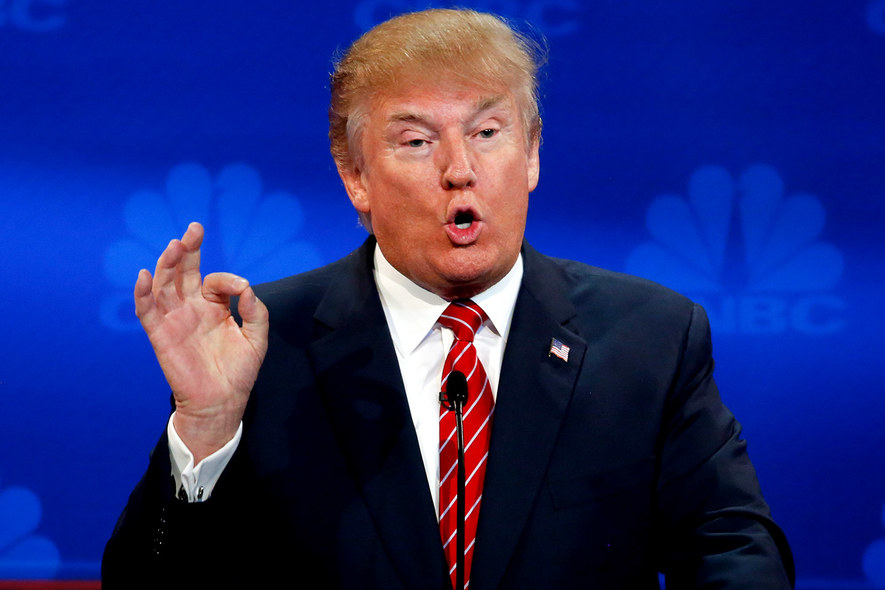Donald Trump, in yet another crazy statement said USA should pull out of WTO and that the existence of the 163 member body has been a disaster. While the statement may look farfetched, it is important to understand the consequences; lest we are caught unaware, at the ascent of trump to the top most position of US and a series of unlikely events.
What is WTO: World Trade Organisation’s operations formally commenced in 1995 when they displaced GATT (General agreement on tariffs and trade). GATT, on the other hand was an outcome of the growing need of coherence and collaboration in international trade in the post world war era. It was not just the devastations of the war that brought economies together; it was also the spate of de-colonisation by the western economies that they felt a structured way should be devised to infiltrate in raw material rich developing nations.
Significance of Free Trade: Free Trade is never bad. Arm twisting by rich nations to coerce lesser endowed ones to fall in line is. In fact, when compared to an economy which is closed to outer products and services, a free trade practise does help in a lot many ways. A free trade replaces a junk and defunct system of regulated production. It gives vocational expertise and resource availability a way to make economic gain across the border. This not just improves conditions of skilled labour in home market, but also forces the unskilled ones in foreign market to improve or perish. In economic terms, a free trade improves efficiency by bringing down the costs, hence making products more valuable by consumers. A simple demand – supply curve demonstrates that additional value is created when free trade is exercised and prices are reduced. Not getting into intricacies of the analysis, it can be safely assumed that free trade is beneficial to both parties.
In the graph, we see the equilibrium price falling. More on this can be read here. This is the effect after free trade. So why do political leaders often whip up electorate regarding trade agreements and entice them. In some of the cases, it does make sense for political leaders to protect the interests of social groups. In other times, it might seem unnecessary.
Free trade does two things to an economy. It not just matches supply and demand by dissolving borders, which helps resources right places to be consumed. There is a counter effect as well. Less skilled workers of the economy where goods have been dumped from outside suffer a lot and are distressed. They are the ones who protest against opening up and are addressed by the regulation backing policy makers.
WTO and India: India, being a part of WTO has gained a lot in previous years. On the other hand there have been some bones of contentions as well. Since India is a net exporter of food, it has always tried those bigger economies like USA and Japan reduce their farm subsidies to level the playing field. Via, Agreement on Agriculture (A-o-A) India tried to push its interest of getting tariffs and duties in importing countries reduced.
WTO and USA, Why Trump wants a pullout: The pros and cons of free trade have been widely discussed. While there is a general consensus that free trade if implemented ‘everywhere’ will benefit ‘everyone’. But this suffers from the Prisoner’s Dilemma as well. All countries have a proclivity to cheat (read – relegate from the earlier assumed position). Free trade, both bilaterally imposed and multilateral ones implemented as blocks, have definitely benefited USA as well. But it has harmed it as well. There have been many jobs lost, not just in the service sector, but in manufacturing as well as the markets opened. The disgruntled workers form now a large bloc which Trump wants to milk.
Though implementation of free trade is a zero sum game, it remains interesting to see how the beneficiaries remain silent but the people who lose out prove to be strong headwinds in the implementation. Reason behind such skewness is simple. People who benefit slowly get the benefits but are not really thankful to the government immediately. But the reverse is always true. People who lose jobs and resources never forget or forgive the government. Prospect theory can provide more insights why there is not a linear relationship between such payoffs.
What if USA pulls out?
The prospects of USA pulling out of an organisation as penetrated as WTO are far. But again nothing is unpredictable in this world. As Brexit proved most of the analysts wrong after Britain decided to go alone, an analysis of USA pull out will not hurt. As emphasised earlier, such a pullout will affect the working of global trade and commerce in the ever connecting world. Keeping aside grievance India and other emerging countries might have, it will be extremely difficult if WTO goes to the brink of collapse. There will be numerous bilateral treaties to compensate for its collapse and they will leverage on forming small groups of mutual benefit.
